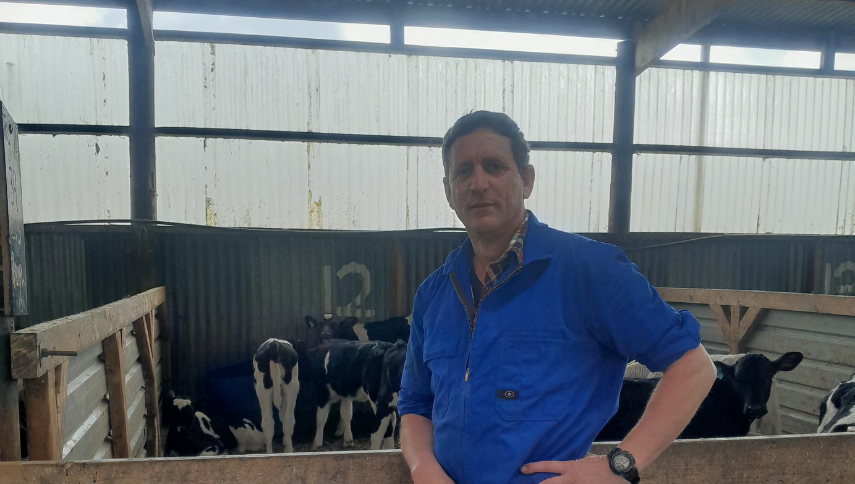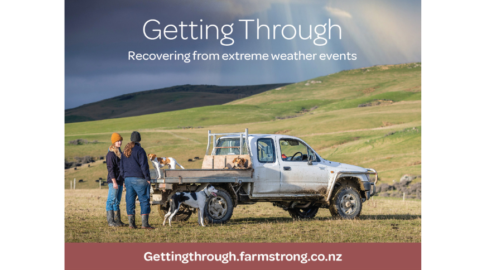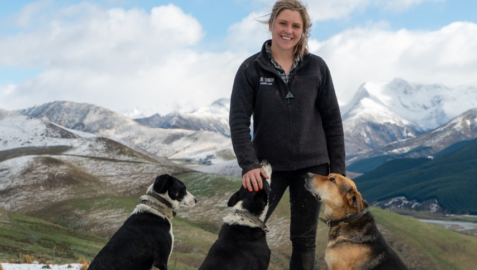
The Power of a Shared Story
Module Overview
The results of Farmstrong’s latest annual monitor survey are really encouraging. Last year, 15,500 farmers and growers increased their wellbeing thanks to the programme.
A driving force behind these stats are the many farmers who support Farmstrong by sharing what they do themselves to keep well mentally and physically.
Let’s face it, when it comes to practical strategies for keeping well in a demanding, seasonal industry there’s no substitute for lived experience.
Tararua dairy farmer Mike Burmeister is a good example of this approach in action. Mike and his wife Heather farm 710 ha just north of Pahiatua and milk 980 cows on 324 ha with a team of seven, many of whom have worked with them for years.
After decades in the industry, he’s clear on his priorities. “My first priority is my family’s wellbeing, my second is my staff’s wellbeing and my third is my stock’s wellbeing.”
He admits an episode of burn out early in his career helped shape his thinking. “I was in my early 20s, milking about 260 cows and working day in, day out, all hours of the day and half the night, and it reached the stage where I turned up for milking one morning feeling so exhausted that I told the guy working for me ‘I’m going back to bed for a couple of hours’. I didn’t wake up until the next day! I was just doing way too many hours. When you’re that tired, you’re running round in circles achieving nothing. That was my first real wake-up call.”
Thirty years on, it’s no surprise that working smarter hours rather than longer hours is a hallmark of Mike’s operation. They milk 3 times in 2 days (3 in 2). The milking roster has not only proved kinder on staff (every second day’s a 7.30 start), it’s brought a host of other benefits too. His cows are collectively walking 420,000 fewer kilometres a year improving their welfare, ten million less litres of water are being pumped through the cowshed per annum in a catchment where water use is at a premium, the roster has freed up over 1,000 hours of labour that can be applied to other tasks, all while maintaining milk production and increasing profitability.
That’s great for the stock and the team, but who looks after the coach? Mike rang the changes here too. “When the kids were young, we bought a caravan at the beach and committed to spending one weekend a month and one week every school holiday down there, we’d make the effort to get there no matter how busy things were. It was something his wife Heather insisted on. She’d be all packed up with the kids ready to go at 10 past three on the Friday. I was never ready, but I still got in the car. And as soon as I did that, I’d switch off from the farm and enjoy the rest of the weekend. I’d come back mentally refreshed.”
These days the bolt hole is a beach house but Mike’s approach to work-life balance remains the same. His go-to during the week is a quick game of social squash.
“I’m not that good but it’s great to go and do something physical like that. Some days when I’m heading there, I think ‘why am I doing this?’ But then when I’m driving home, I’m thinking ‘shit, that was a great idea’. The beauty is I can leave here, play a game and then be back an hour later, feeling great.”
Reflecting on how farming has changed over his life, Mike concludes, “Farming was very physically demanding for our forefathers. These days I think it’s mentally harder. There’s more of everything, and people are time poor. We have larger farms, larger herds, bigger teams of people to manage, and there’s more compliance and regulation. You never get to switch off and you’re always looking over your shoulder.”
“That’s why I think Farmstrong’s a great initiative. Anything that helps connect and strengthen rural communities has got to be a good thing. I believe if you’re not proactive about looking after yourself, you won’t last as long in the industry.”
“Farming’s my passion. It’s all I ever wanted to do, but there’s no doubt that the steps I’ve taken to look after myself have made a massive difference to my longevity.”
Let’s leave the final word to Farmstrong ambassador Sam Whitelock: “Farmstrong would like to thank all the farmers and growers who’ve taken the time to share their insights over the past year. Your contributions are really helping us to ‘shift the dial’ in this space.”
“I like to think of Farmstrong as a verb, it’s something people can actually do to increase their wellbeing. I’ve seen first-hand how well its solutions work for rural people when they choose to adopt them. Why are people making these changes? Because they know to get the best out of your farm or orchard, first, you need to get the best out of yourself.”
If you’ve got a story to share about managing the ups and downs of farming that could help others, contact info@farmstrong.co.nz.


